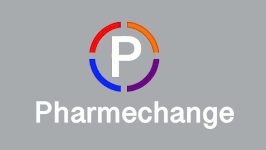
Auteur

paracelsus69
paracelsus69
Forum » » Etre titulaire » » une pharmacie /3 au bord de la faillite....
Posté : 02-11-2012 08:52 ![]()
Thousands of Spanish pharmacies are on the verge of collapse due to public debt, the president of Spanish pharmacists council CGCOF has warned.
Speaking at the Spanish council of pharmacists, CGCOF, annual meeting in Santander, council president Carmen Peña said: "Thousands of pharmacies all over the country are suffering from late payments by autonomous regions, some of them close to an untenable situation".
Peña told delegates at the event on Friday: "Pharmacies reach 99% of the population, and are key to the sustainability of the health system, suffocating them is suffocating one of the pillars of welfare", according to transcripts of the event.
Spanish debt with pharma impacts manufacturers directly mainly through unpaid hospital drugs bill, but also hits pharmacies when prescriptions are not paid by autonomous regions.
At the moment of purchase, Spanish patients pay for a certain percentage of prescription drugs, according to their income. The rest of the price is to be paid by regional governments. Sometimes, pharmacies pay providers in advance and, if late payments continue, they start running low on stock.
So far, pharmaceutical associations of five Spanish regions have said that their debt is over 1 billion euros. Pharmacists in Catalonia region were called on a strike last week because of late payments, with 80% of pharmacies closing their doors.
Less money and bigger responsibility
At the CGCOF meeting, ministry representatives turned to pharmacists to help manage chronic, poly-pharmacy patients as a way to achieve cost-effective care.
Pilar Farjas, health minister Ana Mato's second in command, turned to pharmacists: "To build a new model of pharmaceutical care, oriented to help health authorities deal with an increasing population of chronic, dependant and polymedicated patients".
Farjas said that the ministry fully trusts the pharmacists will co-operate to the sustainability of the health system.
Speaking before Farjas, Isabelle Adenot, president of the Pharmaceutical Group of the European Union (PGEU), said that pharmacies are the most widely used health infrastructures in Europe, with 98% of patients within a 30 minute-walk range of a pharmacy.
Adenot said that "it has been shown that pharmacists' intervention can reduce up to 29% the workload on primary care and emergency rooms, up to 25% on the health system as a whole".
Pharmacists' responsibility is even bigger in Spain, where 80% of patients have declared they regard these professionals as a most reliable source of health advising, Adenot said.
Besides their functioning as a system of drug authentication, Adenot emphasised pharmacists' key contribution to treatment adherence, follow-up of chronic patients and other individualized health services.
Source: APM Health Europe, 30-October-2012
XoXo
Cet article provient de Pharmechange
https://www.pharmechange.com/viewtopic.php?topic=12128&forum=21